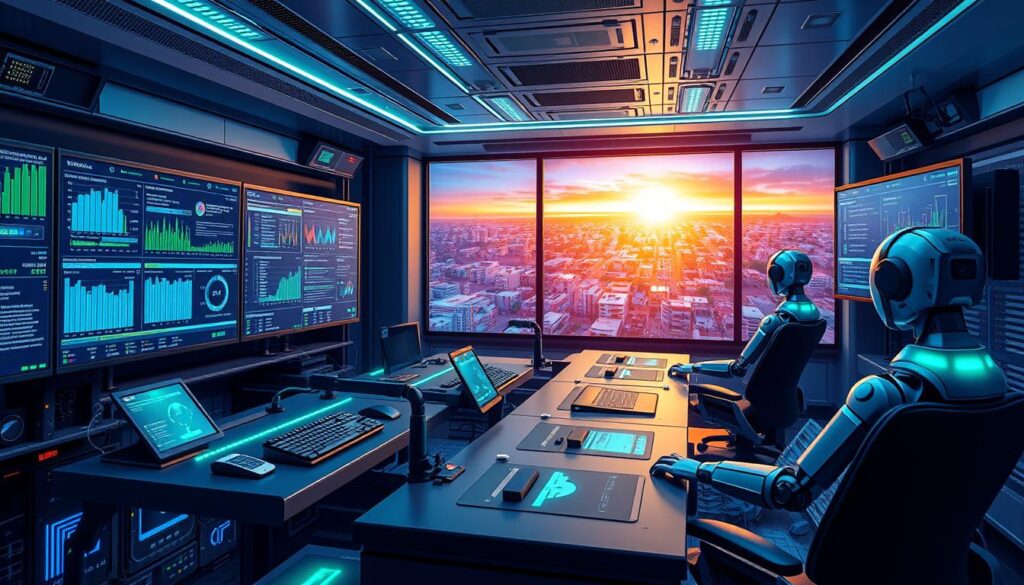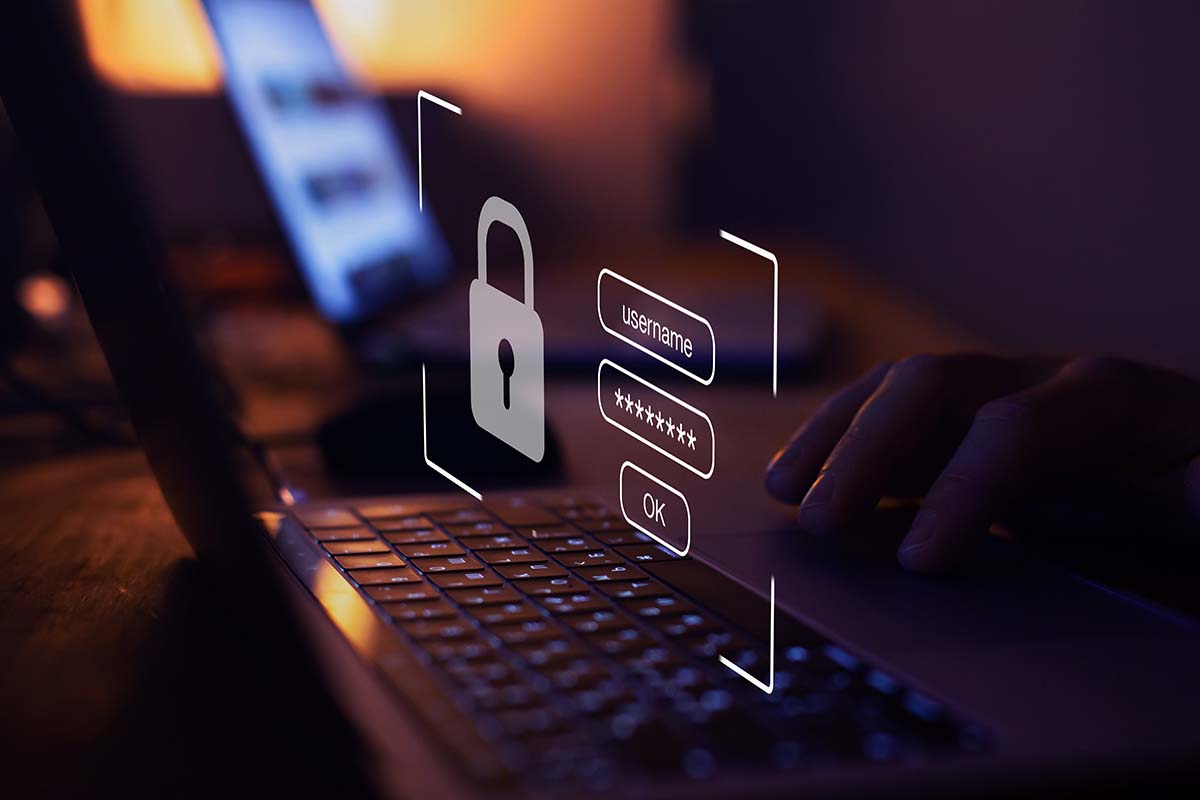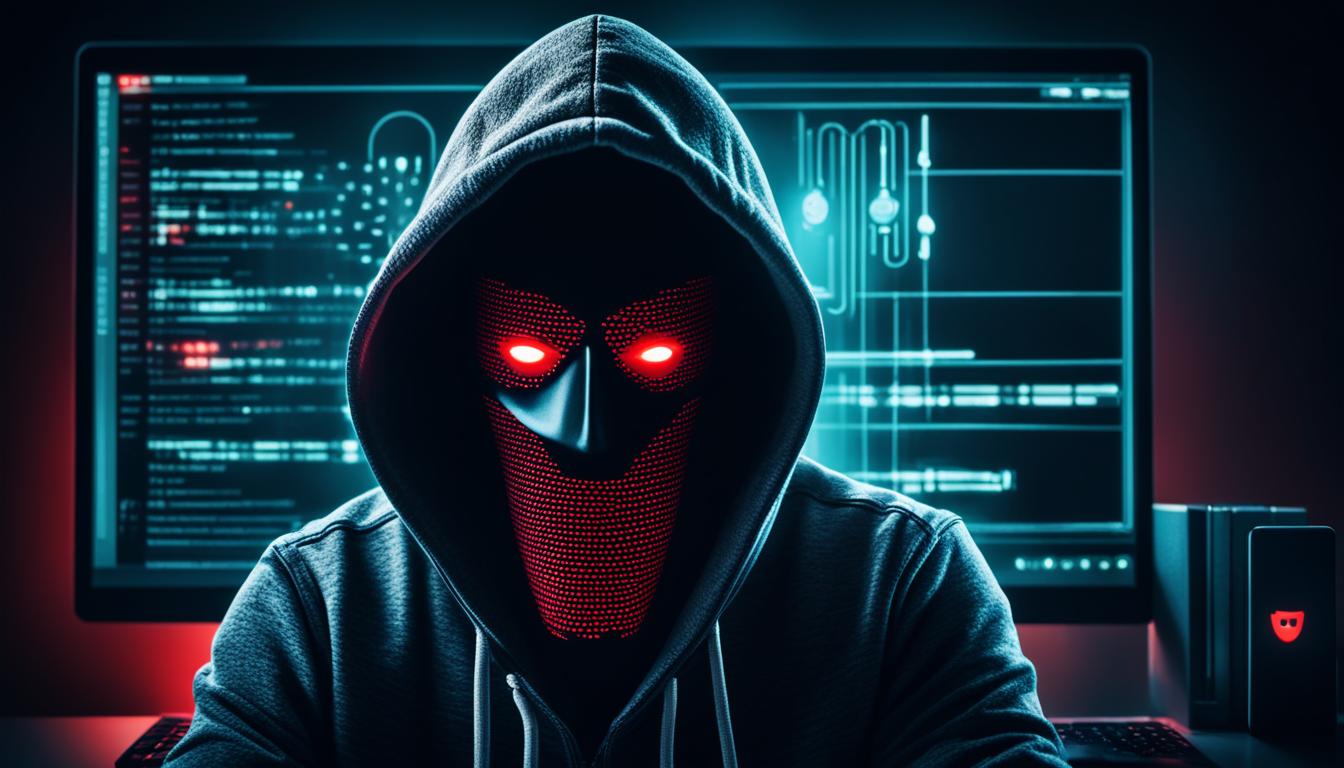Can Cybersecurity Be Automated? The Future of Defense
In today’s world, the debate on whether cybersecurity can be automated is getting a lot of attention. With cyber threats getting more complex, companies are looking for better ways to protect their online assets. But can we really replace the human touch in cybersecurity with automation? This piece looks into how automation can change cybersecurity, the role of AI and machine learning, and what the future holds for defending against cyber threats.
Key Takeaways
- Cybersecurity automation is becoming increasingly necessary to address the growing complexity and speed of cyber threats.
- AI and machine learning are playing a crucial role in automating security processes, from threat detection to incident response.
- Automated security tools and platforms are revolutionizing the way organizations approach cybersecurity, offering faster and more efficient defense measures.
- Security orchestration and automation (SOAR) streamlines security operations and enables more effective threat management.
- While automation offers significant benefits, the need for human oversight and expertise remains crucial in addressing the limitations of automated systems.
Cybersecurity Automation: The Inevitable Future
The digital world is changing fast, and so are cyber threats. Cybercriminals use new tactics to get past even strong security. This makes protecting our digital world harder.
Read More: What is Cybersecurity? Types, Threats, and Cyber Safety Tips
The Growing Complexity of Cyber Threats
Cyber threats are now more complex than just phishing or malware. Hackers use AI and ML to make their attacks harder to stop. They do everything from ransomware attacks to spying for countries, making security challenges huge.

The Need for Faster and More Efficient Security Measures
Old ways of fighting cyber threats don’t work anymore. Humans need to catch up with the speed and scale of attacks. So, there’s a big need for security automation that uses AI and ML.
Security automation helps organizations fight threats fast and keep data safe. Automated threat detection and incident response with AI in cybersecurity and machine learning for cybersecurity is key to staying ahead.
As technology keeps moving forward, security automation platforms will be key in cybersecurity’s future. By accepting this future, companies can strengthen their defenses and protect their important assets from cyber threats.
Read More: How is AI used in cyber security?
Can Cybersecurity Be Automated?
The complexity of cyber threats is growing fast. This makes us wonder if cybersecurity can be fully automated. Automated security tools and platforms are sparking a debate on the future of cybersecurity.
Automated security solutions have gotten better over the years. Automated security tools can now quickly find threats, check for vulnerabilities, and respond to incidents. Security automation platforms offer a way to manage and automate many security tasks.
But, fully automating cybersecurity is hard. Automated tools can do many routine tasks. Yet, they still need human skills and oversight for complex decisions and advanced threats. The question is, will cybersecurity become automated? Depends on how well AI and machine learning improve and blend with human security experts.
A mix of automation and human expertise is the best way forward. Automated tools can make things more efficient. This lets security teams focus on big, complex tasks. Humans are still key for providing context, critical thinking, and adapting to new threats.
The cybersecurity world is always changing. Automation’s role will surely increase. But, fully automating cybersecurity still needs to be revised. A hybrid approach that uses both human and machine intelligence is likely the best solution for now.
Read More: Why AI is the future of cybersecurity?
The Role of AI and Machine Learning in Security Automation
In the world of cybersecurity, AI and machine learning are changing the game. They’re key to the future of security automation. These technologies are making it easier to spot and tackle cyber threats. This helps organizations make their security work more efficient and effective.
Automated Threat Detection and Incident Response
AI and machine learning are changing how we handle threats and respond to incidents. They look through lots of data to find patterns and potential threats quickly and accurately. This means security teams can act quickly and well. It makes security better and lets experts focus on harder tasks.
Machine learning in cybersecurity is a big deal. It lets security systems learn and get better at fighting threats. This AI-driven cybersecurity way helps defend against threats before they get worse. It protects organizations from the bad effects of cyber attacks.
As cyber threats get more complex, AI and machine learning are more important. Using these technologies helps organizations improve their security. They can handle security tasks better, stay strong, and keep up with cyber threats.
Automated Security Tools and Platforms
The world of cybersecurity is getting more complex. This has led to a rise in automated security tools and platforms. These tools are changing how we handle security tasks. They make threat detection, incident response, and security management easier.
Automated security tools use AI and machine learning to automate security tasks. This means they can find and fix threats faster and more efficiently. Tools like automated vulnerability scanners and real-time threat monitors are part of this suite. They help make an organization’s security stronger.
Security automation platforms are like central control centers for security tools and processes. They work with many security solutions. This lets security teams automate tasks, improve how they handle incidents, and see their security situation clearly.
Using automated security tools and platforms has many benefits. They can:
- Save time and resources for security work.
- Make finding and responding to threats faster and more accurate.
- Give a better view of security and help in making decisions.
- Make security workflows better and lower the chance of mistakes.
The need for better and more proactive security is growing. So, the use of automated security tools and platforms is likely to increase. By using these new solutions, organizations can keep up with cyber threats and protect themselves better.
Read More: What is the Main Role of Cyber Security?
Security Orchestration and Automation (SOAR)
Security Orchestration and Automation (SOAR) has changed how we handle cybersecurity. It brings together different security tools and processes. This makes automated workflows, incident response, and threat mitigation easier.
This new approach has made security automation and response better. It gives organizations a way to fight cyber threats more efficiently.
Integrating Security Processes for Improved Efficiency
SOAR connects different security tools, making it easier to manage security tasks. It automates repetitive tasks. This gives a clear view of an organization’s security, helping teams make quick decisions and respond to threats faster.
SOAR makes security operations smoother. It cuts down the time and effort needed to handle threats. This means quicker response times, better threat detection, and stronger security automation. It makes an organization’s security stronger.
Enhancing Security Resilience through Automation
SOAR doesn’t just make things more efficient; it also makes an organization more resilient. By automating routine tasks, security experts can focus on strategic work. This lets them tackle new threats and improve security continuously.
SOAR also works well with security analytics and machine learning. This helps organizations spot and deal with threats faster and more accurately. Adding SOAR to security strategies is key to handling cyber incidents well.
The Benefits of Cybersecurity Automation
As cybersecurity threats grow more complex, companies are using automation to boost their defenses. Cybersecurity automation brings many benefits that help businesses stay ahead. Let’s look at the main advantages of automating security processes.
Improved Threat Detection and Incident Response
One big plus of cybersecurity automation is detecting threats faster and responding quicker. Automated tools keep an eye on networks, systems, and user actions. They spot threats right away. This lets security teams act fast, lessen the damage from cyber attacks, and protect data better.
Increased Efficiency and Cost Savings
Automating tasks like log analysis, vulnerability scanning, and patch management makes security operations more efficient. It takes the load off security teams, letting them focus on big-picture security plans. Plus, automation cuts costs by reducing the need for manual work and lowering the chance of mistakes.
Enhanced Security Resilience
Cybersecurity automation makes your security stronger. By automating how you handle incidents, you can tackle threats faster and more reliably. This means you’re less likely to fall victim to cyber-attacks. It helps keep your business running smoothly and protects important assets, even against tough cyber threats.
The importance of automation in cybersecurity is clear as threats keep getting more complex. By using automated threat detection and incident response, companies can boost their security, work better, and stay ahead in the fight against cyber threats.
Read More: Why is Cyber Security Important?
Challenges and Limitations of Automation in Cybersecurity
Cybersecurity automation has many benefits, but it also has challenges and limitations. These include the risk of false positives, the need for human oversight, and the ongoing need for specialized cybersecurity expertise.
The Need for Human Oversight and Expertise
Automated security systems are great at catching known threats. However, they can only keep up with new cyber threats sometimes. That’s where human oversight and expertise are key.
Cybersecurity experts are crucial. They check the automated tools’ outputs, verify alerts, and decide on the right responses. Automation helps, but more is needed on its own.
It’s important to balance automated processes with human oversight. Automation shows we still need skilled cybersecurity pros. They must interpret data, spot new threats, and make strategic decisions to protect our digital assets.
- Challenges of cybersecurity automation include the risk of false positives and the need for human oversight.
- Automated tools can struggle to adapt to new and evolving cyber threats, emphasizing the importance of human expertise.
- Cybersecurity automation is not a substitute for skilled professionals who can analyze data, identify emerging threats, and make strategic decisions.
As we keep investing in cybersecurity automation, finding the right balance is key. The limitations of automation highlight the ongoing need for specialized cybersecurity expertise. This ensures our security is effective and resilient.
Robotic Process Automation (RPA) in Cybersecurity
In the fast-changing world of cybersecurity, finding new ways to make security work better is key. Robotic Process Automation (RPA) is changing the game. It automates simple tasks, letting security teams tackle harder challenges.
Cybersecurity experts use RPA for many tasks, like finding threats and handling incidents. It makes security work faster and more efficient. This leads to better security operations overall.
RPA cuts down the chance of human mistakes. It makes sure important tasks are done right every time. This helps keep an organization safe from security risks.
RPA also makes security work more efficient by eliminating manual tasks. Security pros can then focus on deeper, more strategic work. This makes the security team work better together.
As cyber threats keep changing, using RPA in cybersecurity will grow. It helps make security work smoother, quicker, and more resilient against threats.
Autonomous Cybersecurity: The Future of Defense
The world of cybersecurity is always changing. Now, we’re moving towards a future where autonomous cybersecurity leads the way. This new approach uses advanced AI and machine learning to fight threats. It does this by detecting and responding to threats on its own, with little help from humans.
Autonomous cybersecurity systems are designed to learn and adapt. They can quickly spot unusual activities and take action. This means they can protect companies from complex cyber threats more effectively and efficiently.
This new technology could change the game for cybersecurity. It automates routine tasks and uses predictive analytics. This lets cybersecurity teams focus on bigger challenges, making them more secure overall.
As more companies adopt autonomous cybersecurity, they need to get ready. They should invest in new tech, train their teams, and encourage innovation. This will help them use AI-powered cybersecurity and AI-driven security to its fullest.
The future of autonomous cybersecurity looks bright. It promises a stronger and more flexible defense against digital threats. By adopting this technology, companies can achieve higher security, efficiency, and speed. This puts them ahead in the era of AI-driven security.
Addressing the Skill Gap with Automation
The cybersecurity field is facing a big challenge – the cybersecurity skill gap. There’s a huge demand for skilled cybersecurity pros, but there needs to be more. Automation is seen as a key solution, making security work more efficient. It lets experts focus on important, strategic tasks.
Upskilling and Reskilling Cybersecurity Professionals
Using automation and cybersecurity skills is key to closing the skill gap. Automated security tools cut down on time-wasting tasks. This lets cybersecurity professionals spend more time learning new skills. This keeps them up-to-date with the latest in cybersecurity.
With special training and ongoing learning, cybersecurity teams can learn to use and manage automated tools well. This mix of automation and human know-how is vital. It helps create a strong, flexible cybersecurity defense against today’s digital threats.
FAQ
Can AI replace cybersecurity?
AI and machine learning are making cybersecurity better, but they will only partially replace it. Cybersecurity needs both tech and human skills. AI helps, but humans will always be key in making decisions.
Will cybersecurity become automated?
Cybersecurity is getting more automated with tools like AI and SOAR. But we have yet to automate everything. A mix of automation and human skills is best for tackling cyber threats.
Will cyber security be in demand in the future?
Yes, cybersecurity will keep being in high demand. As tech gets better and threats grow, we’ll need more skilled people and solutions. AI will help, but humans are still vital for complex issues.
Can cybersecurity be automated?
Yes, some parts of cybersecurity can be automated. Tools and platforms are making security better and faster. But we can only automate some things. Human oversight is still key for good security.
What is the future of AI in cybersecurity?
AI’s future in cybersecurity looks bright. It’s already helping with things like finding threats and responding to incidents. As it gets better, AI will make security faster and smarter.
What is the future use of AI in cyber security?
AI in cybersecurity will grow in many areas. This includes finding threats, predicting security issues, and responding to incidents on its own. It will also give personalized security advice and adapt to new threats.
Can I combine AI and cyber security?
Yes, combining AI and cybersecurity is happening now and will grow. AI helps with finding threats, analyzing vulnerabilities, and responding to incidents. By using AI, companies can improve their security and handle complex threats better.






